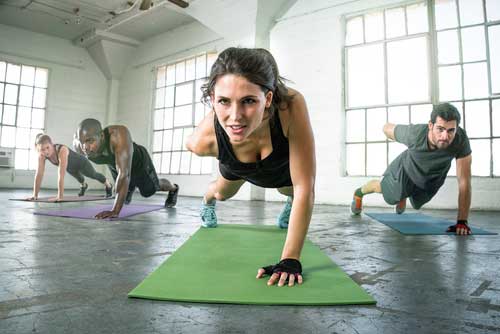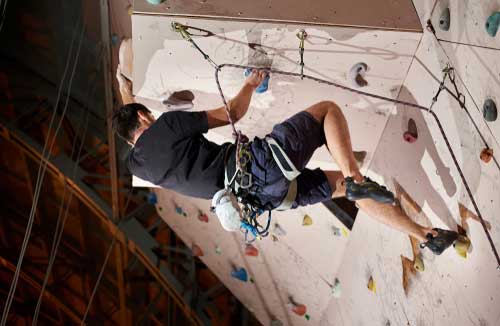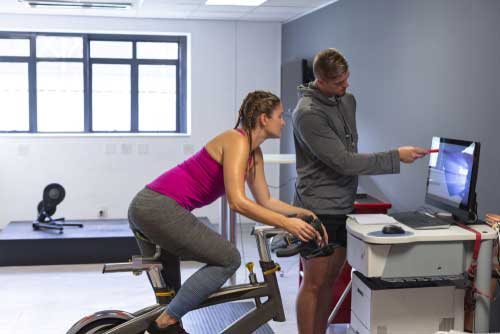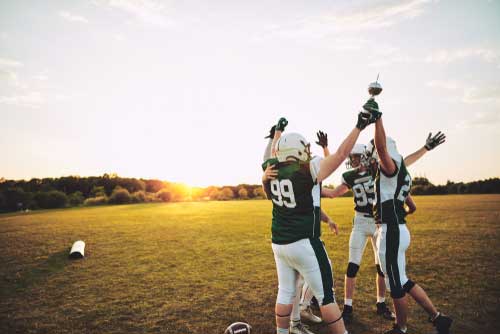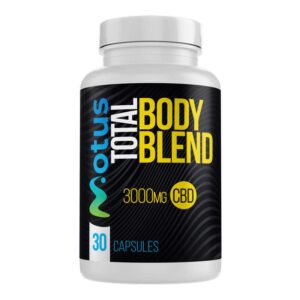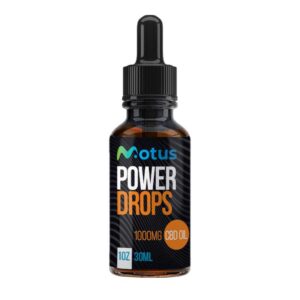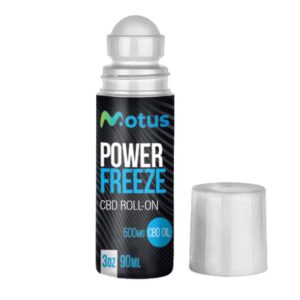To be an athlete in the modern world of sports & fitness competitions means pushing yourself to the absolute limits. Athletes today have so much technology & information at their disposal, but many professionals and amateurs alike suffer from the effects of physical, mental and emotional strain. Pushing yourself past the limits of your physical & mental wellbeing isn’t necessarily a bad thing – it’s through this commitment to challenging oneself that leads athletes to achieve truly remarkable feats.
Athletes succeed or fail by how they manage their bodies. In fact, you could almost argue that professional athletes are more health & fitness managers than they are performance athletes. The more work you put into your physique and mental fortitude, the more success you have in your chosen sport/activity.
Maintaining this kind of high octane level of training & performance definitely has its drawbacks, however. To consistently be at their best, athletes need to push themselves constantly – never settling for less than the next tier of excellence. Even with all the techniques, trainers, nutritionists and therapists within arms reach it can be very difficult for athletes to uphold these high standards throughout their careers.
To achieve these lofty goals of excellence in fitness takes time, dedication and a lot of blood-sweat-and-tears. No matter how dedicated or how hard someone trains, nobody can escape the injury bug from hampering their progress. Everything from a muscle tear, fatigue from overworking yourself, or mental health issues from all the pressure are commonplace in the world of professional athletes. These mental & physical hurdles aren’t part of the sport, but they’re undoubtedly a major component of any athlete’s journey.
OPEN YOUR EYES TO A WORLD OF CBD ATHLETIC BENEFITS
If injuries and mental illness can’t be outright avoided, then what can athletes do to minimize the damages that a muscle tear or emotional breakdown can cause?
Between physical therapists, sports psychologists, meditation sessions and nutritionists there are a lot of supports for athletes to turn to. There are also hundreds and thousands of health supplements that athletes can rely on for achieving their desired optimal levels of fitness. Protein powders, amino acids, micronutrients shakes, pre- and post-workout capsules, and many more types of supplements are custom designed for targeted results.
Because athletes rely on these kinds of health supplements so often over such long periods of time, there is a growing concern around the long-term health & safety of relying on such products. A lot of athletes, both professional and amateur, are turning to their roots (literally!) and relying on natural supplements as much as possible.
These ultra-health-conscious athletes are setting the new standards for what it means to be a professional – commitment to their craft without sacrificing their health & wellbeing in the process.
This is where a plant-based phytocompound like Cannabidiol has made a niche for itself in the world of professional sports & fitness. CBD for athletes has grown in popularity from a little-known cannabinoid to a safe, effective and efficient natural health supplement for a variety of health-related problems.
If you’re an athlete or sports enthusiast you might be curious about these benefits of CBD oil for athletes? Or maybe you wonder about certain CBD athletic benefits that can take your routine to the next level?
Let’s take a good look at the top benefits of CBD for athletes and learn how to optimize CBD doses for athletic training, performance and recovery.
BENEFITS OF CBD FOR ATHLETES: WHAT’S THE SCOOP?
Many skeptics wonder: if CBD is so beneficial for athletes and fitness professionals, why isn’t it officially sanctioned by health authorities?
CBD benefits for athletes are still relatively in their infancy – it was only a few years ago when WADA (World Anti Doping Agency) ruled that Cannabidiol was no longer a prohibited substance for professional athletes. THC (Tetrahydrocannabinol) still remains restricted by WADA and many other sporting agencies, but athletes can include isolated forms of CBD in their training & recovery routines moving forward.
Interestingly, WADA set a urinary threshold of 150 nanograms per milliliter for THC, which is substantially more lenient than the previous limit of 15 nanograms per milliliter. In December 2018, The U.S. passed the Farm Bill, promoting Federal hemp cultivation and legalized CBD derived from hemp.
Most athletes are turning to hemp-derived Cannabidiol due to these plants’ very low THC contents. Athletes may acquire cannabis-sourced CBD products, but they do so at their own risk of testing positive for THC. There are no “high effects” associated with CBD when in its isolated form, so many athletes invest in THC-free, hemp-derived CBD isolate extracts.
Cannabidiol is also not known to have any addictive properties, nor does there seem to be any adverse effects from long-term use. These points are very important to many athletes as their rigorous training regiments sometimes lead to consistent dosing of pain medications or NSAIDs (Nonsteroidal anti inflammatory drugs). Although these kinds of pain & inflammation medications are known to be safe, a growing contingency of athletes are concerned about the effects on the body with years and years of use.
More research is needed to determine these two points:
1) What are the risks of long-term use of pain medications and anti-inflammatories?
2) How can CBD be incorporated into a person’s short- and long-term routines to the most benefit?
Many people have already experienced the benefits of CBD oil for athletes firsthand, but before the general consensus adopts this phytocompound into the lexicon of everyday remedies it will take a lot more study & analysis.
Have you ever wondered how CBD benefits athletes? How does this stuff work, anyway? This is the most common question people have about Cannabidiol.
CBD capsules, CBD topicals, or CBD oil benefits for athletes stem from their ability to interact with your Endocannabinoid System (ECS). Within your nervous system, two endocannabinoids (2-AG and EAE) are produced in postsynaptic neurons (downstream) and released into the synapse. They bind to CB1 and CB2 receptors on the presynaptic neuron (upstream) and act to inhibit the release of certain neurotransmitters.
CBD, like other cannabinoids found in various plants, interacts with your ECS and your body allocates its biochemical efficacy to wherever your body needs it most. If you’re experiencing inflammation, CBD initiates anti-inflammatory effects in your muscles to reduce the swelling. When you’re in pain, CBD effectively helps your body to block the pain receptors from being triggered, easing your discomfort.
Need an energy boost or help clearing mental fog? CBD can instill a sense of calm, freeing you from the burdens of nervousness, fatigue or stress. CBD also makes for a very effective sleep aid. Cannabidiol has a lot of calming and relaxing effects which naturally lend itself to athletes suffering from performance anxiety, stress from their physical & mental workloads, or trouble sleeping after arduous workouts.
WHAT KIND OF CBD PRODUCTS FOR ATHLETES ARE THERE?
Athletes can consume CBD in many different ways each with their own advantages/disadvantages. The delivery method is moreso a matter of preference and convenience, since CBD doses for athletes can be customized. Capsules, oils and topical supplements are the norm, with a variety of CBD potencies available for each of these product types.
CBD is often infused into sports drinks, recovery shakes, and all manner of pre- and post-workout snacks & beverages. Drops of CBD oil or tinctures can be placed under your tongue or added to food/drink, making CBD oil for athletes one of the most popular.
The way CBD is consumed is mostly dependent on how quickly an athlete needs to experience its effects. Capsules, oils, and edibles must be digested, so they might take a bit longer to activate. Topical creams are said to be quicker than edibles due to the fact that they are quickly absorbed by the skin and can be applied to specific areas for targeted relief. Sublingual drops/tinctures are said to be the most rapid activation, but there is still some debate over the efficiency of these kinds of dosing techniques.
It’s important to remember that CBD oil for athletes is considered to be the best combination of versatility and efficacy. Some people aren’t very keen on the taste of CBD oil – it can be quite a potent hempen/herbal flavor when not combined with flavor additives. However, most agree that the benefits of CBD oil for athletes far outweigh its minor drawbacks.
Another crucial consideration athletes need to make is that Cannabidiol affects everyone differently – sometimes on a dose-by-dose basis. Each person’s Endocannabinoid System can variably interact with CBD, so it’s important to follow the “golden rule”. start slow, dose on the small end and monitor your body’s response closely. This is not a health hazard – that is, there isn’t the risk of ‘overdosing’ or experiencing a ‘high’ like with THC. CBD does not have negative side effects, but you can dose too much resulting in wasted product – too much Cannabidiol is not processed by your body’s ECS, therefore going to waste.
WHAT KIND OF CBD DOSES FOR ATHLETES WORK THE BEST?
When it comes to determining CBD doses for athletes, the strength of the dose is typically broken into 150-250 mg, 500-750 mg and 1000-2500 mg. Dosing is very unique to each person so there’s no “one dose fits all”. Even suggesting potency ranges or dosing frequency can be fruitless as everyone’s ECS will react differently to certain sources and concentrations of cannabinoids.
Another crucial consideration athletes need to make is that Cannabidiol affects everyone differently – sometimes on a dose-by-dose basis. Each person’s Endocannabinoid System can variably interact with CBD, so it’s important to follow the “golden rule”.
What is the golden rule of CBD doses for athletes? It’s pretty simply:
Start slow, and go slow!
The best results come about when you begin with the lowest dose and monitor your body’s response closely. As you notice the effects of CBD, increase your dose incrementally and continue to pay close attention to how you’re feeling.
The reasons people apply this “golden rule” approach to dosing has less to do with health hazards and more to do with being efficient. That is, there are no risks of ‘overdosing’ or experiencing a ‘high’ like with THC. Instead, athletes are careful to dose properly for two main reasons:
- To get the most benefits of CBD oil for athletic performance
- To avoid wasting product
It’s great that there are no serious side effects of taking too much or too little CBD, but you do run the risk of introducing inordinate amounts of these active phytocannabinoids into your system. Your ECS can only make use of so much Cannabidiol, so your dosing has to suit your needs or you’ll potentially be flushing some of the precious active compound through your system.
CBD Oil For Sports Injuries
There are a number of benefits of CBD oil for athletes, but the big 5 are:
Can Relieve Pain: According to the latest research, CBD can support your body in reducing pain, including musculoskeletal pain from exercise, as well as stiff joints. This is an area where anecdotal evidence and biological plausibility are the best we have until research catches up. Despite the shortage of hard proof, CBD is taken to relieve pain by many athletes.
May Help Reduce inflammation: A little bit of inflammation can be good for athletes and help stimulate positive training adaptations. On the flip side, too much inflammation hinders recovery and hurts performance. There are CB2 receptors in both the brain and periphery, but they are more concentrated in immune tissues. CBD is known to be great for inflammation, and it can be taken throughout the day to treat inflammatory muscle conditions.
Can Settle your gut: Inflammation in the small and large intestines causes a lot of discomfort, and GI distress is one of the leading reasons endurance athletes drop out of races. CBD won’t solve stomach problems from dehydration and overheating, but if you have underlying inflammation issues that contribute to gut problems during or after exercise, CBD may be effective for reducing your symptoms.
May Improve Sleep Quality: Getting more sleep and better quality of it is one of the most effective ways an athlete can achieve greater training gains. Athletes who consume CBD report an easier time falling asleep, sleeping longer and an overall increased quality of sleep.
Can Increase Energy & Focus: CBD has a calming effect on the body, but that is not to say it does not enhance mental focus. Cannabidiol can ease nervousness or stress and instill a sense of calm, focused relaxation. Even better, instead of being in a state of a euphoric daze, CBD can help athletes feel energetic and empowered with a heightened sense of readiness.
These CBD oil benefits for athletes represent the tip of the iceberg, and we’re learning more with each passing week. Keep up to date on all the exciting news, products and healthy lifestyles you can achieve with hemp CBD from Verlota.
CBD Oil For An Athlete’s Recovery
One of the top uses for CBD for athletes is for recovery. Recovering from injuries or intense training routines is a major problem for most athletes – downtime from an injury or lengthy recoveries from pushing themselves past their limits can be the difference between success and failure.
CBD oil for athlete recovery is easy to incorporate into any sportsperson’s routine. Some of the most popular ways CBD can be included in an athlete’s recovery routine:
- CBD oils or CBD oral sprays can be taken under the tongue or ingested orally
- CBD topicals can be applied to sore, swollen or spasming muscle and joint areas
- CBD gummies or capsules can be taken throughout the day or on-demand
CBD For Endurance Athletes
CBD has become quite popular among endurance athletes as well. Runners, cyclists, triathletes and the like have started including in their day-to-day routines. The reasons that make CBD effective for endurance athletes is that it works to reduce wear-and-tear on muscles & joints. Daily CBD ingestion or topical application can help endurance athletes by easing pain in key areas (knees, ankles, hips, shoulders, etc) and helping to reduce the chance of inflammation causing health/fitness issues.
Endurance athletes also have a lot of strict energy & sleep requirements. CBD oils, topicals and capsules/gummies can support endurance athletes by helping them get the rest they need to be at their best. Additionally, CBD can support good energy levels by cutting down on the effects of fatigue, lethargy, and mental tiredness or anxiety.
FAQ’s
Is CBD good for athletes?
CBD can certainly support good health & fitness in professional athletes and active individuals alike. Cannabidiol sourced from hemp is growing in popularity around the world as an effective supplement for training, performance and recovery.
How much CBD do athletes take?
Depending on an athlete’s sport and what they’re using it, CBD has many benefits for athletes. Dosing can range anywhere from tens of ml’s to hundreds & thousands of ml’s daily. Cannabidiol sourced from hemp does not have the same risks as cannabis-CBD because of the little-to-no THC contents of hemp varieties. Therefore, dosing can be done much more fluidly because there are no risks of psychoactivity from THC.
Does CBD help sexually?
Cannabidiol and other cannabinoids like Tetrahydrocannabinol (THC) have been known to enhance a person’s libido and sex drive in limited studies. However, some studies suggest that long-term use of cannabinoids can have adverse effects on a person’s sex drive – such as reducing their libido. Nonetheless, many people experience increased motivation, energy and stimulation when combining CBD with sex.
Why do athletes use CBD oil?
Athletes turn to CBD oil for a variety of reasons, but the most common ones have to do with training, performance and recovery. The benefits of CBD for athletes range from easing pain & inflammation, to helping them rest and recover. Cannabidiol from hemp is also known to be great for helping athletes focus, cut down on nervousness and fatigue so that they can feel energized for their training sessions.
Is CBD banned for athletes?
Since 2018, WADA (World Anti Doping Agency) removed CBD from the prohibited substances list. This meant that athletes all over the world could start including CBD in their training regiments and approved supplements for recovery. CBD is not a performance enhancing substance, but it can help to reduce the severity & frequency of detracting factors – such as pain, swelling, stiffness, injuries and illnesses. CBD is approved, but THC is still heavily restricted. For these reasons, many athletes prefer to use hemp-derived Cannabidiol because there is much less risk of THC contents.

